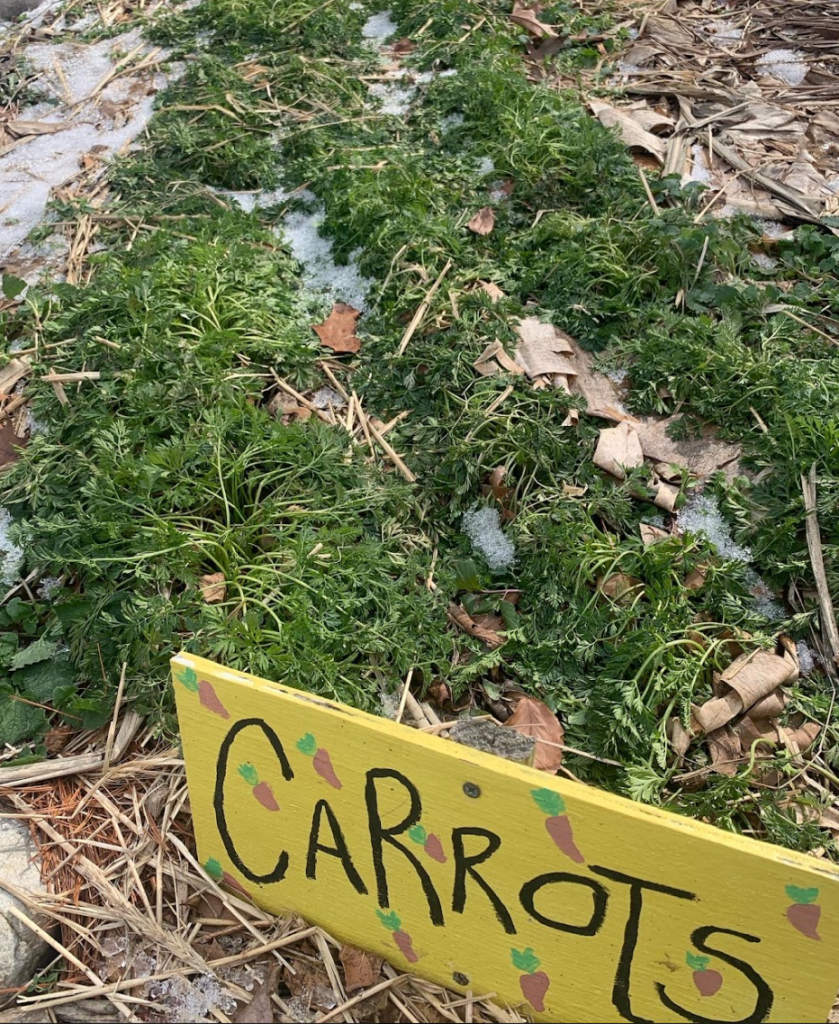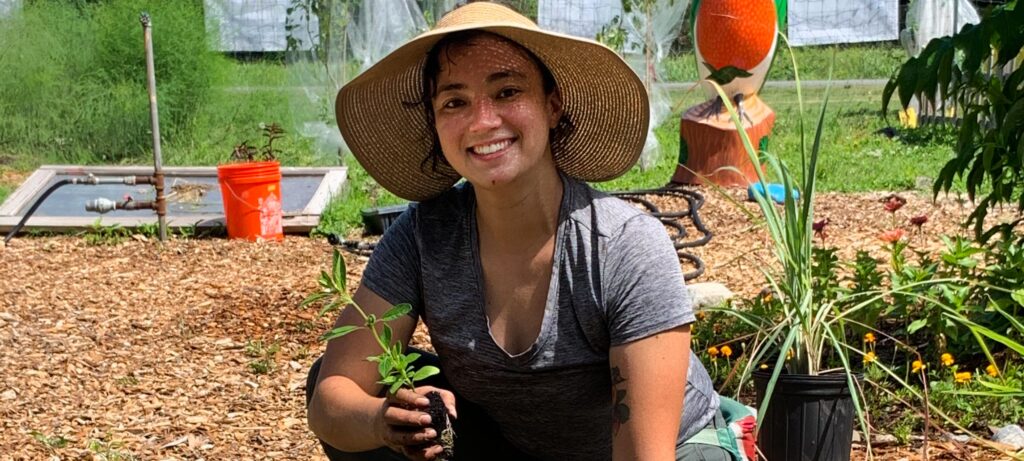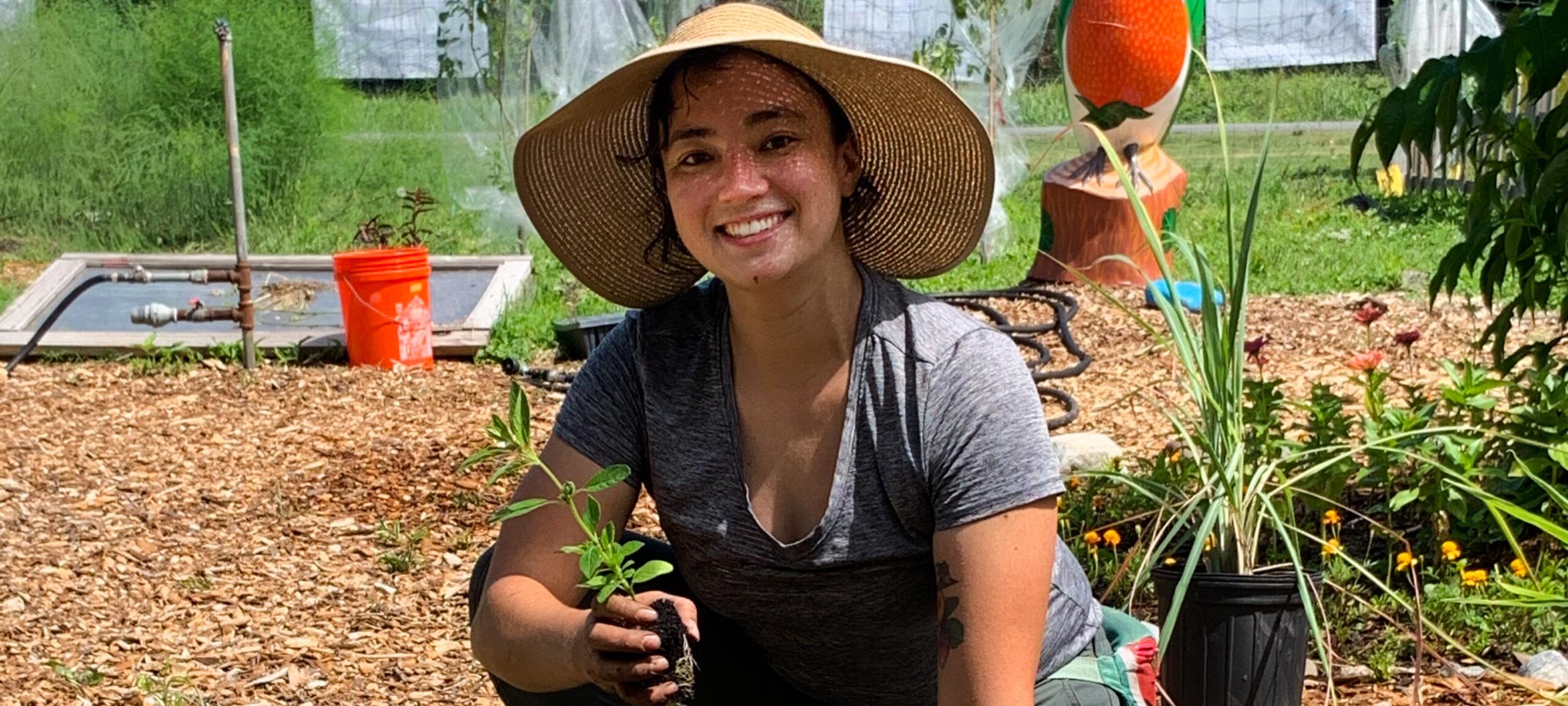Emilia’s Garden Tips: Putting the Garden to Sleep for Winter
Mulching & Cover Crops
We highly recommend mulching and/or planting cover crops (living mulch!) to help manage soil erosion, increase soil health, decrease weeds and pests.
To plant cover crop: sprinkle the seeds over the soil, lightly cover with soil, and water them in.
Winter rye, winter wheat, and Austrian winter peas can still be planted through mid-November. Read more about planting cover crops here. The benefit of planting winter peas is that in early spring you have edible pea shoots for your students to try!
If you don’t have cover crop seed or you missed the mark on planting times, mulching your garden beds to protect the soil is still vital over the winter. Adding dried organic material will prevent weed growth as well as provide nutrients and carbon-rich matter which helps aerate and condition the soil. It will also keep the soil warmer and protect any tender plants (like garlic!) you might have in your garden. Straw, dry leaves, dry grass clippings, compost, are all great mulch options.
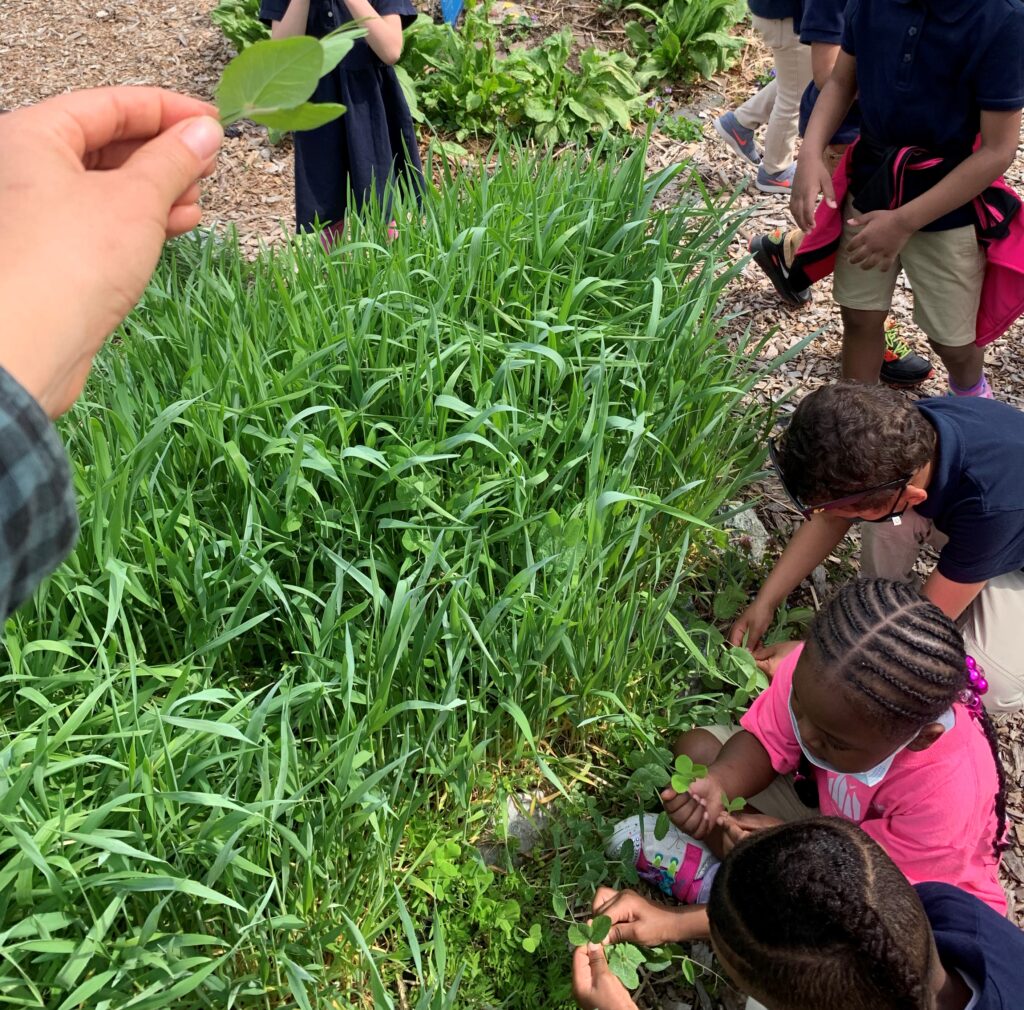
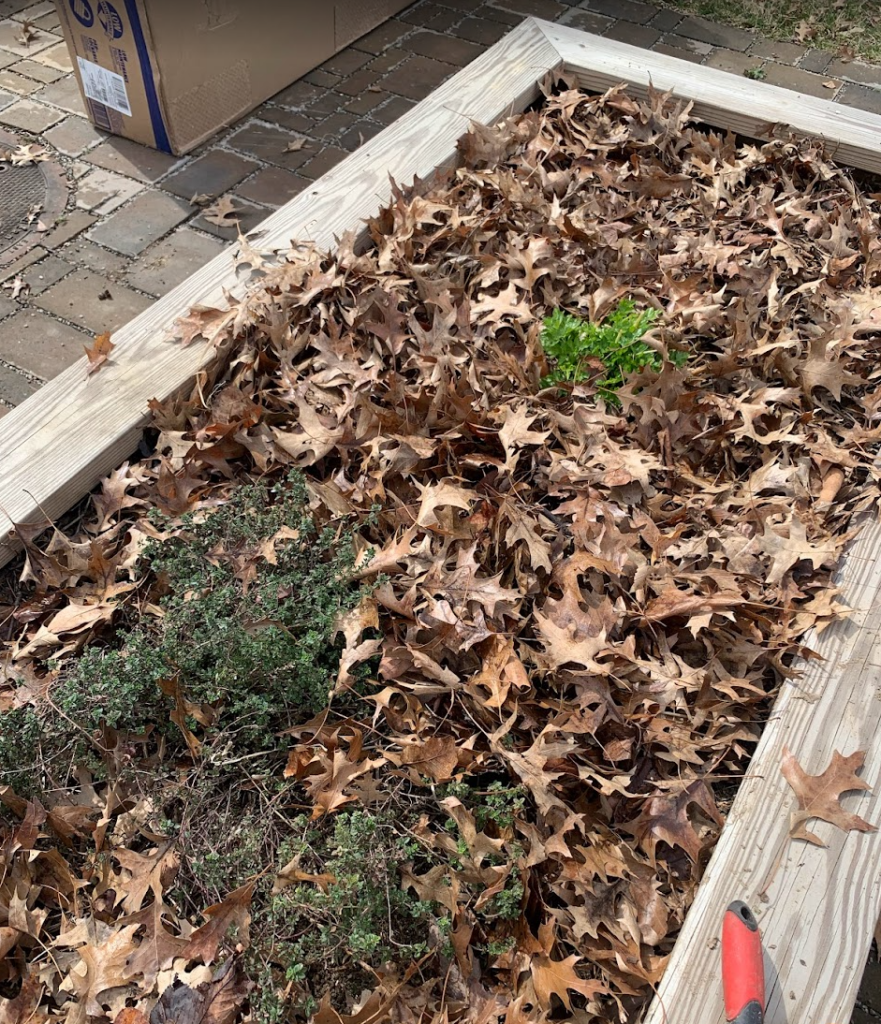
Prune Perennials (With Care!)
Fall is a good time to trim some perennial garden plants (but not all):
- Plants that benefit from a fall pruning: herbs like rosemary, thyme, sage, fennel (you can make holiday herb bundles for your school community with these cuttings); vegetables like asparagus and rhubarb
- Some plants prefer a spring pruning: raspberry & blackberry (spent canes provide nourishment and protection to the plant’s crown in the winter); most fruit trees prefer a winter or spring pruning while they are dormant.
Also, try to resist the urge to cut back your perennial flowering plants, particularly those covered in seed heads. This is an excellent food source for overwintering birds and insects in your neighborhood!
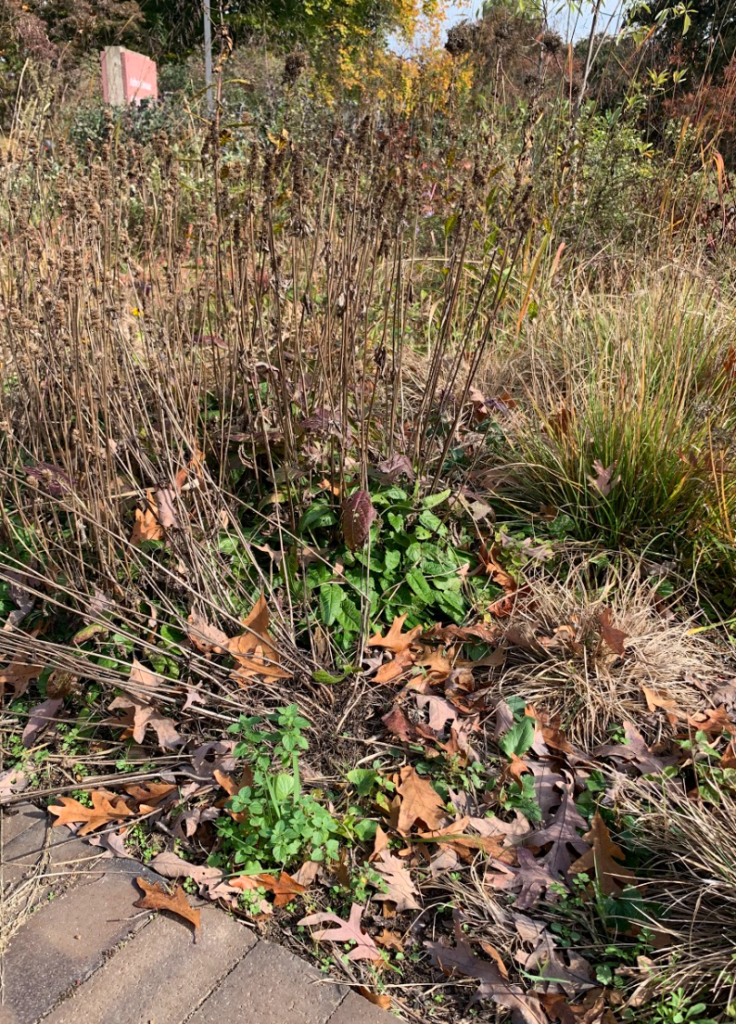
Overwintering Veggie Crops
Some crops are able to overwinter (grow through the winter season) in the DC.area with some time, patience, and row cover. Most of these crops should be almost ready to harvest or near maturity by the time the frost comes because they will slow down growth through the winter — the soil and mulch will act as a protective cover. Then there will be new growth in the spring!
Some say root vegetables that have overwintered are sweeter when harvested in the spring. This is because they switch to survivor mode in the cold and convert starches to sugars more quickly, hence a sweeter taste!
Radishes, carrots, beets, spinach, and lettuce are ideal crops for overwintering.
See our 6 Season Garden Maintenance Guide for more tips throughout the school year.
